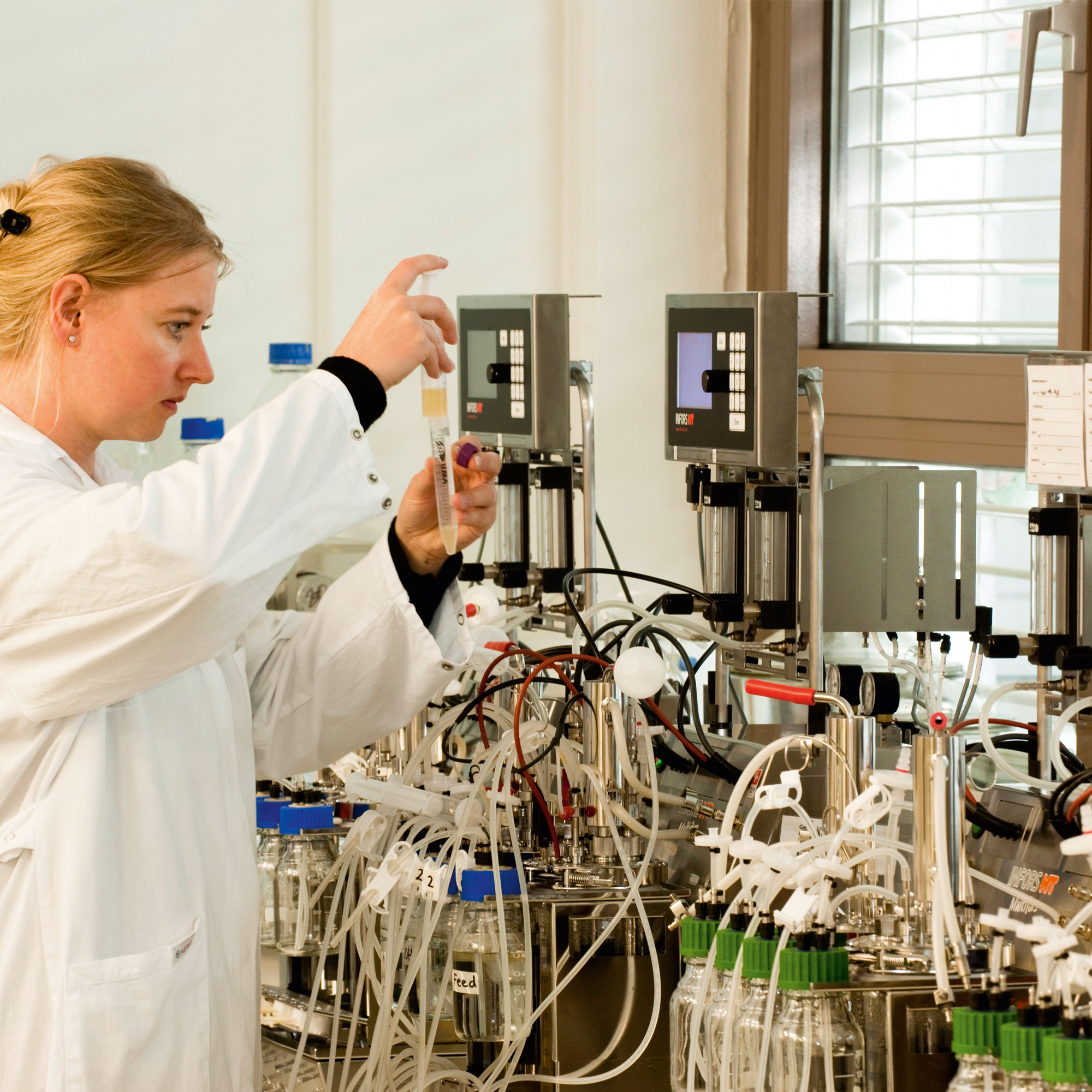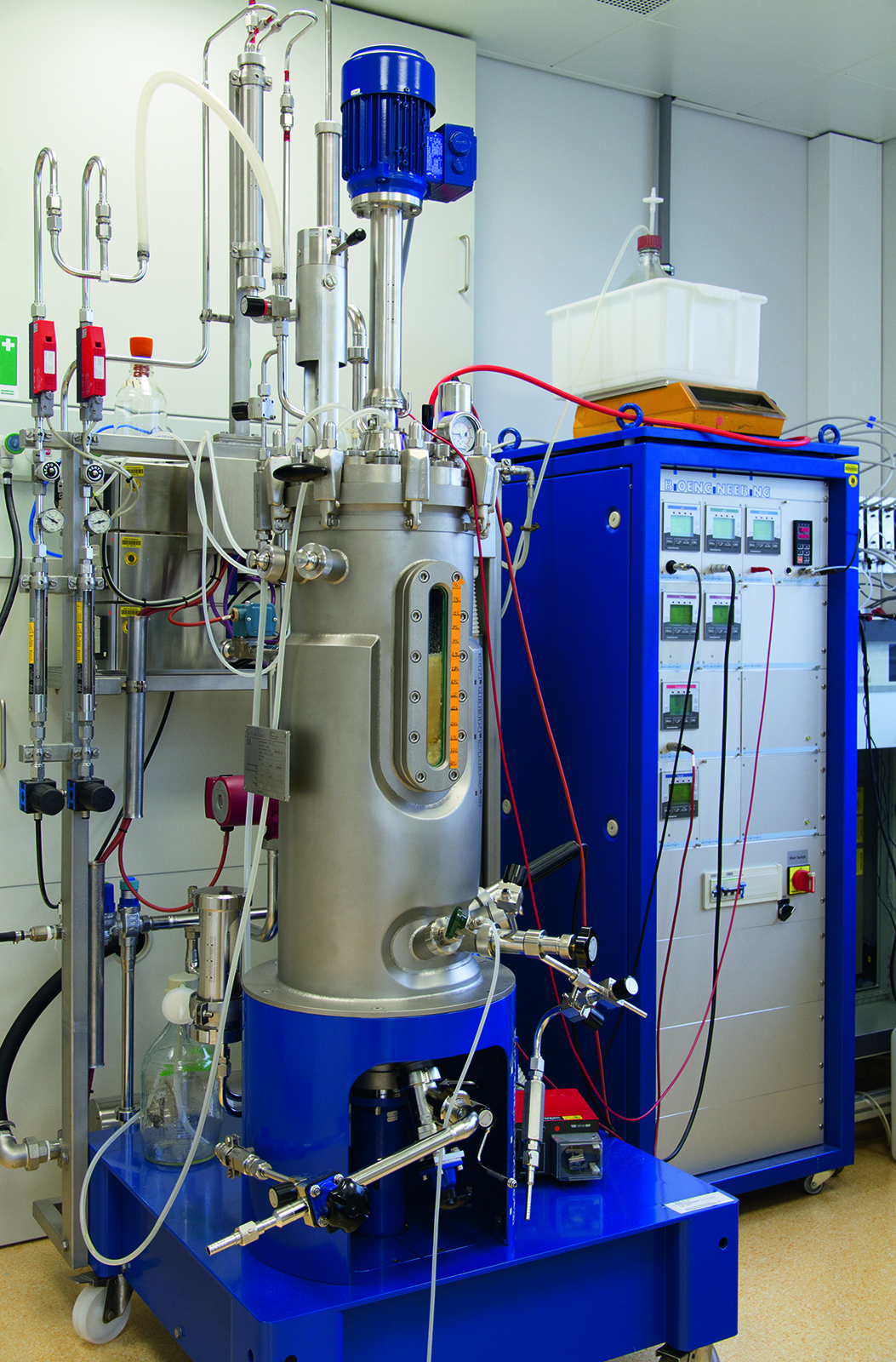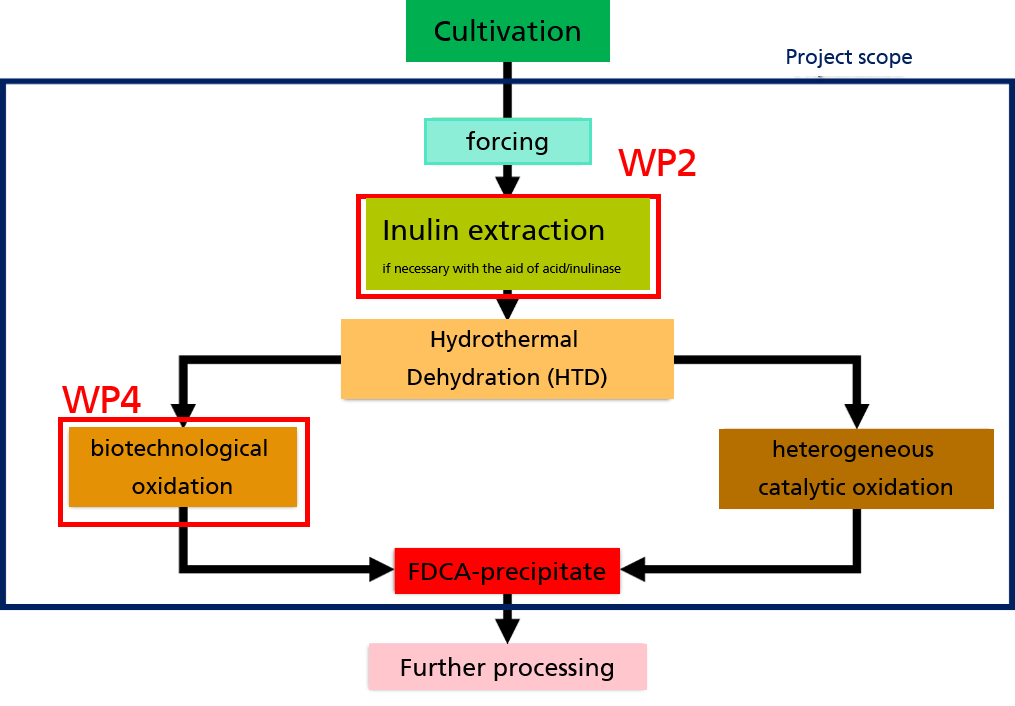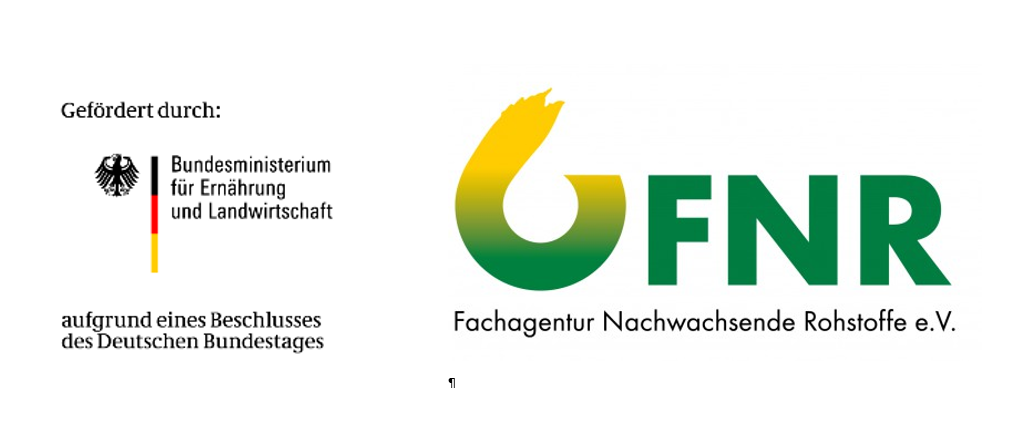The objective of the KEFIP project is the development of a multi-stage process for the conversion of inulin-containing chicory root beet, which is produced as agricultural waste, to 2,5‑furandicarboxylic acid. Processes for inulin extraction, conversion to fructose and conversion to 5‑hydroxymethylfurfural as well as its oxidation to the platform chemical 2,5‑furandicarboxylic acid are investigated in order to provide the chemical industry with a raw material for polyester or polyamide production.
KEFIP – Complementary chemical-biotechnological process development for the novel production of 2,5-furandicarboxylic acid (FDCA) from inulin-accumulating plants



Challenge: Biobased building blocks for biodegradable plastics.
Conventional plastics are made from petroleum, a limited fossil resource. Biobased polyesters and polyamides are a promising alternative. 2,5‑Furandicarboxylic acid (FDCA) can be produced from biomass and is considered a sustainable substitute for p‑terephthalic acid, the starting material for PET.
Advantages and applications
Moreover, polymers synthesized from FDCA, such as polyethylene furanoate (PEF), are not only biobased but also biodegradable. The polyester PEF also has significantly improved gas and water retention properties than its petroleum‑based analog PET. Which is why FDCA is traded as a sustainable p-terephthalic acid substitute with correspondingly great market opportunities.
The objective of the KEFIP research project is to develop a sustainable, multi‑step process for the conversion of inulin‑containing chicory root beet, an agricultural waste product, to 2,5‑furandicarboxylic acid (FDCA). Inulin is a plant storage substance consisting of fructose building blocks. The polysaccharide is used in the food industry, among others. While inulin with the highest possible molecular weight is required here, inulin can be used in the KEFIP approach regardless of the degree of polymerization. This avoids competing uses of the biomass feedstock.
Production of FDCA from inulin
In the KEFIP research project, the inulin built up during cultivation or forcing is first extracted, converted to 5‑hydroxymethylfurfural (HMF) by hydrothermal dehydration, and then oxidized biocatalytically or heterogeneously catalytically to 2,5‑furandicarboxylic acid (FDCA). In terms of a process that is as resource‑efficient as possible, the HMF originating from the hydrothermal dehydration is not to be separated and purified, but used directly for the oxidation.
Within the KEFIP project, the bioprocess development group of Fraunhofer IGB is working on the extraction and depolymerization of inulin from chicory root beets in order to make fructose available to the project partners for the production of HMF. We are investigating different extraction methods and also a combination of extraction and depolymerization.
Furthermore, the group is developing the biotechnological oxidation of HMF to FDCA using a whole‑cell catalyst. For fermentation development on a laboratory scale, the media composition and process control are first optimized. In fed‑batch fermentations, we also test the addition of various additives to increase the yield and concentration of FDCA from HMF.
Project information
Project title
KEFIP – Komplementäre chemisch-biotechnologische Verfahrensentwicklung zur neuartigen Herstellung der 2,5‑Furandicarbonsäure (FDCA) aus Inulin‑akkumulierenden Pflanzen
Project duration
May 2019 – April 2022
Project partners
- University of Hohenheim, Hohenheim (Germany)
- Karlsruhe Institute of Technology (KIT), Karlsruhe (Germany)
- Birkenhof Gemüse GmbH & Co. KG, Köngen (Germany)
- HTCycle AG, Murchin (Germany)
Funding
We would like to thank the German Federal Ministry of Food and Agriculture (BMEL) and the Agency of Renewable Resources (Fachagentur Nachwachsende Rohstoffe e.V.). (FNR) for funding the project "KEFIP Complementary chemical-biotechnological process development for the novel production of 2,5‑furandicarboxylic acid (FDCA) from inulin-accumulating plants ", grant number 22010618.
 Fraunhofer Institute for Interfacial Engineering and Biotechnology IGB
Fraunhofer Institute for Interfacial Engineering and Biotechnology IGB